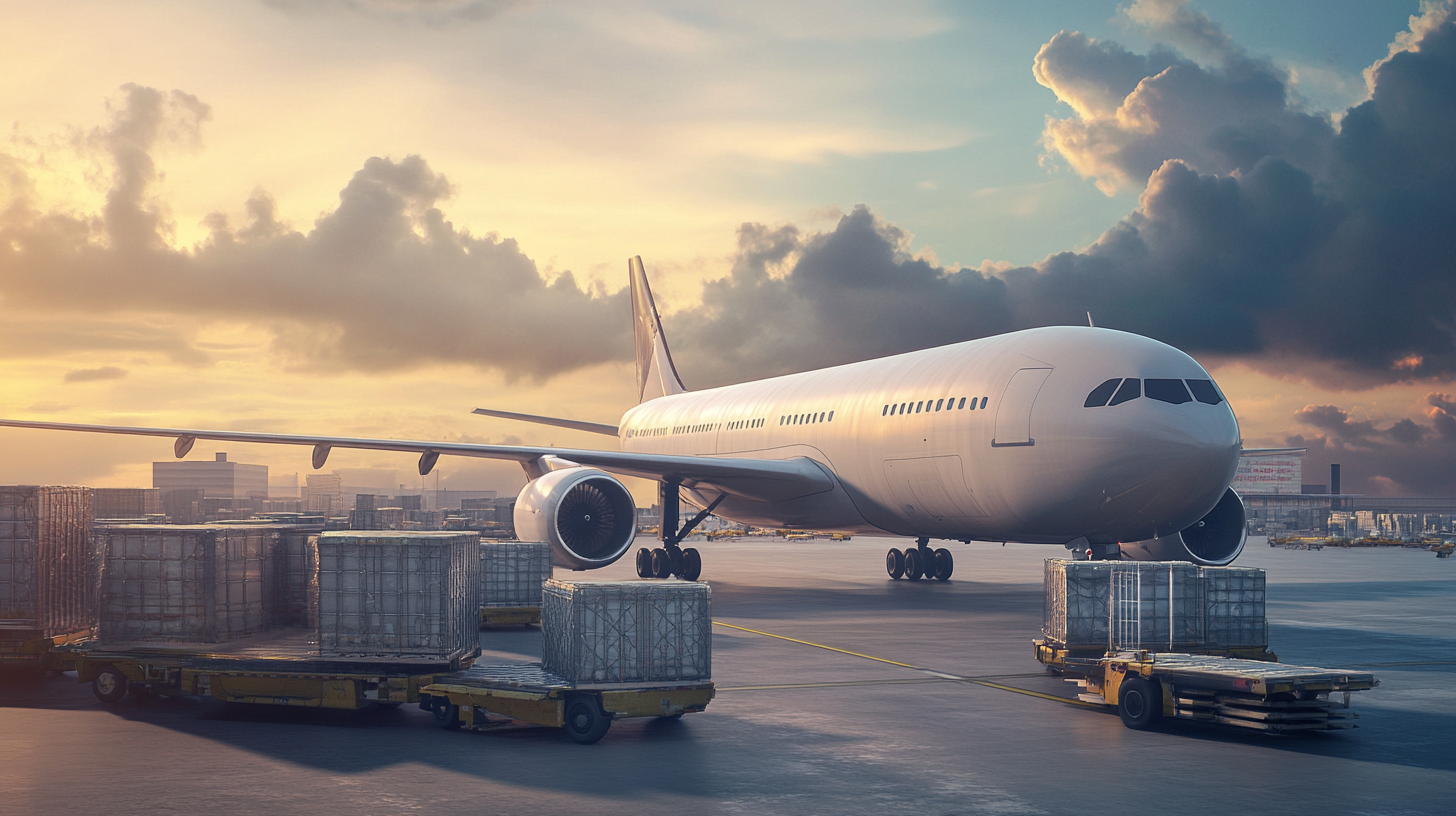
Freight News
Navigating Customs and Regulations in Air Freight

Navigating customs and regulations in air freight can be a daunting task, especially if you’re new to international shipping. The process involves understanding a myriad of rules and compliance requirements that vary from country to country. However, with the right knowledge and preparation, you can streamline your shipping process and avoid costly delays. In this article, we’ll explore the essentials of customs clearance, air freight customs regulations, and how to maintain customs compliance.
Understanding Customs Clearance
Customs clearance is a critical step in the air freight process. It involves submitting necessary documentation to customs authorities to gain permission for goods to enter or leave a country. Whether you’re importing or exporting, understanding the customs clearance process is key to smooth international shipping.
The Basics of Customs Clearance
Customs clearance involves two main steps: documentation and inspection. Documentation requires the submission of various forms, such as the commercial invoice, packing list, and bill of lading. These documents provide details about the shipment, including the value, quantity, and nature of the goods.
Inspection, on the other hand, involves a physical examination of the goods by customs officials to ensure compliance with regulations. This step may vary depending on the nature of the goods and the country’s specific customs policies.
Common Documents Required
- Commercial Invoice: This is the primary document that outlines the transaction between the buyer and seller, including the value and description of the goods.
- Packing List: This document details the contents of each package in the shipment.
- Bill of Lading: A contract between the owner of the goods and the carrier, outlining the terms of transportation.

Air Freight Customs Regulations
Air freight customs regulations are rules set by governments to control the import and export of goods. These regulations are designed to protect national security, public health, and local industries. Understanding these regulations is crucial for ensuring compliance and avoiding legal issues.
Key Regulations to Consider
- Tariffs and Duties: These are taxes imposed on imported goods. The rate can vary depending on the type of goods and the country of origin. It’s important to calculate these costs in advance to avoid surprises.
- Prohibited and Restricted Items: Each country has a list of items that are either prohibited or restricted. Prohibited items cannot be imported under any circumstances, while restricted items may require special permits or licenses.
- Country-Specific Regulations: Different countries have unique customs regulations. It’s crucial to research and understand the specific requirements of the destination country to ensure compliance.
Ensuring Customs Compliance
Maintaining customs compliance is essential to avoid penalties, fines, and delays. Here are some tips to help you stay compliant with customs regulations:
Accurate Documentation
Ensure all documentation is complete and accurate. Any discrepancies or missing information can lead to delays and additional inspections.
Partner with a Customs Broker
A customs broker is a licensed professional who helps importers and exporters comply with customs regulations. They can handle the necessary paperwork, calculate duties and taxes, and ensure that your shipment meets all regulatory requirements.
Stay Informed
Customs regulations can change frequently. Staying informed about the latest updates and changes in regulations can help you avoid compliance issues.
Import Customs and International Shipping
When it comes to international shipping, understanding import customs is just as important as understanding export regulations. Here’s what you need to know:
The Role of Import Customs
Import customs is responsible for controlling and monitoring goods entering a country. They ensure that all imports comply with national laws and regulations, including tariffs, duties, and trade agreements.
Preparing for Import Customs
- Classify Your Goods Correctly: Use the Harmonized System (HS) code to classify your goods accurately. This code determines the tariffs and duties applicable to your shipment.
- Understand Free Trade Agreements: Free trade agreements (FTAs) can reduce or eliminate tariffs on certain goods. Understanding the FTAs between your country and the destination country can help you save on import costs.
- Plan for Inspections: Be prepared for customs inspections, which may include physical examination or X-ray scanning of your goods.

Challenges in Air Freight Customs
Navigating customs and regulations in air freight is not without its challenges. Here are some common obstacles and how to overcome them:
Delays in Customs Clearance
Delays can occur due to incomplete documentation, discrepancies in declared values, or issues with prohibited items. To minimize delays, ensure all paperwork is accurate and complete, and verify the regulations regarding your goods.
High Tariffs and Duties
Tariffs and duties can significantly increase the cost of importing goods. To mitigate these costs, explore options such as tariff classification, FTAs, and duty drawbacks, which can provide refunds on duties paid for re-exported goods.
Complex Regulations
The complexity of customs regulations can be overwhelming. Partnering with a customs broker or freight forwarder can help you navigate these complexities and ensure compliance.
Conclusion
Navigating customs and regulations in air freight requires careful planning and a thorough understanding of the rules and requirements. By ensuring accurate documentation, staying informed about regulations, and partnering with experienced customs brokers, you can streamline your shipping process and minimize delays and costs. With the right approach, you can successfully manage your international shipping operations and expand your business globally.
Streamline Your Shipping Logistics with Express Freight Management
Achieving seamless international shipping operations is not simply about understanding customs and regulations—it’s about having the right partner by your side. Express Freight Management can help you navigate the complexities of international logistics, ensuring timely and compliant cargo movements across global borders. With our expertise, industry-leading solutions, and personalized approach, we offer comprehensive support to streamline your shipping processes. Take the next step towards efficient and hassle-free logistics by partnering with Express Freight Management today. Contact us for more information, and let us help you enhance your business operations worldwide.
